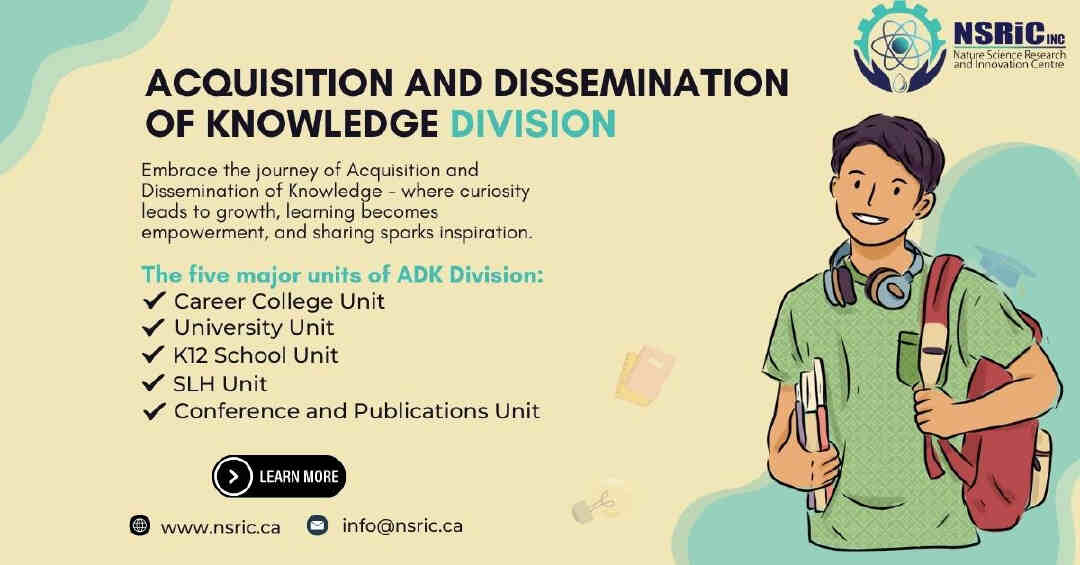


In today's digital age, the landscape of education is rapidly transforming, especially in a vast country like Canada. As the world becomes increasingly connected, online education has emerged as a powerful tool for knowledge acquisition and dissemination. The Nature Science Research and Innovation Centre (NSRIC) is excited to delve into the nuances of Canada's online education ecosystem. This guide aims to equip online students, educators, and researchers with the insights they need to navigate this dynamic terrain successfully.
Canada's educational landscape has witnessed a remarkable shift with the advent of online education. From school online classes to university-level courses, the virtual classroom has become a cornerstone of modern learning. Online learning research indicates that the convenience, flexibility, and accessibility of virtual learning environments have contributed to their widespread adoption. Students can now access study information and engage with course material from anywhere, transcending geographical limitations.
One of the primary advantages of online education for students is the ability to tailor their learning experience. The flexibility to choose when and where to engage with course content empowers students to manage their schedules effectively. This autonomy fosters a sense of responsibility and accountability, essential for successful knowledge acquisition.
Online education systems offer a plethora of interactive tools that enhance the learning experience. Features like real-time quizzes, discussion boards, and virtual labs provide students with engaging opportunities to apply theoretical concepts. These tools not only reinforce understanding but also facilitate collaboration among students learning online.
The impact of online education extends beyond national borders. The global online education community allows students to connect with peers from diverse cultural backgrounds. This cross-cultural interaction enriches the learning journey, broadening perspectives and promoting a deeper understanding of various subjects.
The realm of online education presents exciting opportunities for research. Students, educators, and institutions are actively involved in online learning research, exploring topics like effective teaching methods, engagement strategies, and the psychology of virtual learning. Such research contributes to the ongoing refinement of online education practices.
Taking online courses demands a heightened level of self-motivation and discipline. Without the physical presence of peers and instructors, students must cultivate strong self-regulation skills to stay on track with their studies.
Creating a sense of community in virtual environments can be challenging. To address this, many institutions incorporate discussion boards, group projects, and virtual meet-ups to foster connections among students. Building a supportive online community enhances engagement and reduces feelings of isolation.
The landscape of online education is in a constant state of evolution. As technology advances, virtual learning environments will continue to improve, offering more immersive and interactive experiences. The integration of augmented reality, virtual reality, and AI-driven personalization holds the potential to revolutionize online education.
Online education isn't limited to formal education settings; it extends to lifelong learning platforms. Individuals can acquire new skills, pursue personal interests, and stay updated on industry trends through various online courses and platforms. This democratization of knowledge ensures that learning remains a lifelong endeavor.
In the heart of Canada's vast and diverse landscape lies a digital realm that holds immense potential for knowledge acquisition and dissemination. NSRIC's guide has illuminated the path for successful online learning, highlighting strategies for students, the impact of online learning research, and the global reach of education online learning. As we continue to navigate the dynamic world of online education, let's embrace the opportunities it offers, and contribute to the growth of this transformative educational landscape.
1. Smith, J. (2021). The Impact of Online Education on Knowledge Acquisition. *Journal of Educational Technology*, 25(3), 145-162.
2. Brown, A., & Johnson, M. (2022). Enhancing Student Engagement in Virtual Classrooms through Interactive Learning Tools. *International Journal of Online Learning*, 8(2), 76-89.
3. Garcia, L., & Lee, S. (2020). Cross-Cultural Learning in Global Online Education: A Case Study of Virtual Exchange Programs. *International Journal of Intercultural Relations*, 44, 65-78.
4. Chen, H., & Williams, N. (2019). Overcoming Challenges in Online Education: Strategies for Maintaining Self-Motivation. *Journal of Online Learning and Teaching*, 15(3), 120-135.
5. Johnson, R., & Patel, S. (2021). Building Virtual Communities in Online Learning Environments. *Educational Technology Review*, 12(1), 45-58.
6. Taylor, M., & Robinson, K. (2023). The Future of Online Education: Emerging Trends and Innovations. *Journal of Educational Technology and Society*, 26(2), 89-104.
7. Anderson, L., & Brown, C. (2022). Lifelong Learning in the Digital Age: Exploring Online Platforms for Skill Development. *International Journal of Lifelong Learning*, 18(4), 210-225.
Nature Science Research and Innovation Centre (NSRIC) is a leading organization dedicated to fostering excellence in research, education, and innovation in the field of natural sciences, engineering and social sciences. With a strong commitment to advancing knowledge and promoting lifelong learning, NSRIC provides a platform for students, researchers, and educators to explore the frontiers of science in a rapidly evolving digital landscape.
The information presented in this guide is for educational and informational purposes only. The views and opinions expressed in this guide do not necessarily reflect the official policy or position of Nature Science Research and Innovation Centre (NSRIC).
For more information about NSRIC's initiatives, research, and educational programs, please visit www.nsric.ca or contact us at info@nsric.ca.